Tag: Retirement planning
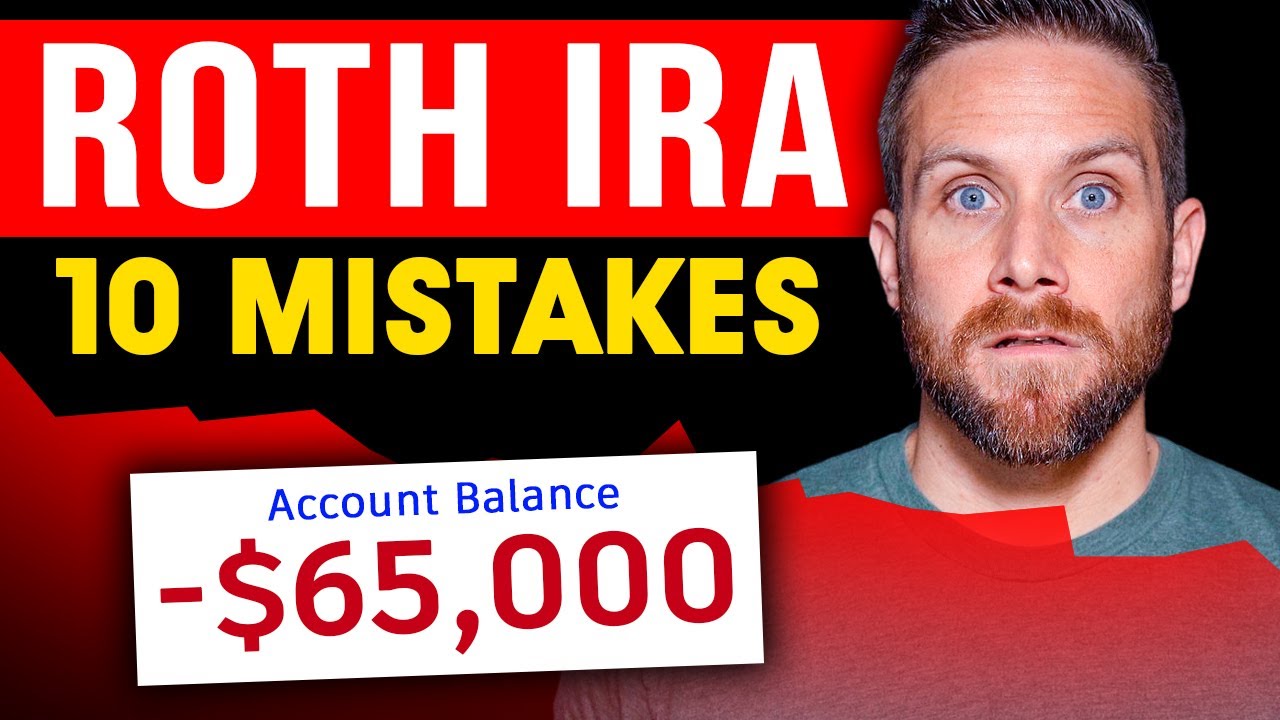
The $65,000 Roth IRA Mistake To Avoid
Jason 0 Comments Retire Wealthy Retirement Planning
– I've seen too many of
you making some mistakes when it comes to investing
in your Roth IRA. One of them could cost you
$65,000 and the other one could cost you almost $500,000. You guys are seriously going
to make my beard turn more gray than it already is if
you don't knock it off. So let me show you what to watch out for, that way, you don't lose more money than you have to and
I can save a few bucks on hair dye for a couple more years. A Roth IRA is a self-directed
retirement account where you can contribute after
tax dollars to be invested. Since the money going in is taxed, the growth of your investments are not taxed and the money withdrawal from the account are never taxed either, as long as you don't try to pull out some of the money before the age of 59.5. There is no such thing
as a joint Roth IRA. So if you and your spouse
want to contribute to one, then you'll have to do it individually, hence the name Individual
Retirement Account.
If you both have enough
earned income separately, then you can each invest up to the $6500 limit for the year. If one of you works and the other doesn't, but you file a joint tax return, then the person working can, of course, contribute to a Roth IRA and
your spouse can contribute to a Spousal Roth IRA as well. Remember, these accounts are
owned by the individual person and on paper, not co-owned by both people. I want to try to encourage you to max out your Roth IRA every single year, if possible, because if you
don't do it for that year, then in the future you
cannot go back and contribute for a previous year once that time limit has passed. A Roth IRA is one of those accounts where I would bend over backwards to make sure that I can
put in the full amount allowed every single year.
In my order of operations for
what to do with your money, I have maxing out a Roth
IRA right after investing up to your employer match and HSA. That is how important
this type of account is. The good news with this
is that you actually have a timeframe of 16
months to contribute for each calendar year. So if we are in 2023
right now, then you have from January 1st, 2023, up until
when taxes need to be filed for that year to contribute,
which in this case, would be April 15th, 2024. That's how it is every single year, so ignore the actual dates in my example and pay more attention to the timeframes since the date taxes are due
will change by a few days from year to year. Most brokerages will ask
you which year you want to contribute to. For example, I personally
invest using M1 Finance, which you can check out down
in the description below, and also get a deposit bonus as well.
If I contributed to my Roth
IRA through them right now, then they would ask if I wanted the money to go towards 2022 or 2023, since at the time of recording this, we haven't hit the date
where taxes are due. This is great because it
gives you some extra time beyond the current year to
contribute Roth IRA money for that year. Before I tell you the next mistake that I see way too many people making, please help support my dog Molly by hitting that thumbs up
button and sharing this video with anyone you think it would help. Once you deposit money into your Roth IRA, there's one more extremely important step you need to do that I see a ton of people missing, and that is
actually investing the money.
I can't tell you how
many people I've talked to over the years who just put money into the account assuming
it would automatically grow, or knowing that they
needed to invest the money, but just forgetting to do
it because life happens, and things naturally slip out of our mind, only to check their account
balance years later, realizing that it hasn't grown in value because they didn't invest the money. Stop the nonsense here and
just set up auto investing within your investment account, and if you're waiting because you think that you can time the market
to buy in at a lower price, you can't, because it's
nearly impossible to do, so just to get the money
invested right now. If you know how you want to
invest the money, then great. If you don't, then I personally
like the two fund portfolio for people who are in
the accumulation phase of investing and in the
three fund portfolio for when you're closer to
retirement or in retirement.
I'll have a link to a
playlist then I made just for you where I teach you
about both of those portfolios down in the description below
and above my head as well. When you contribute to a Roth IRA, all of your money is not
locked up until 59.5. You can withdraw the
contributions that you've made before that age without paying a penalty, but you cannot withdraw any of
the gains within the account. For example, if you've contributed $6500 and the account has grown to $10,000, then you can withdraw
the $6500 contribution, but you cannot touch the $3500 gain without paying a penalty until 59.5. I've gotta interject for a second to give my personal opinion on this.
While withdrawing money
penalty-free is an option, I want to encourage you not to do this. To be brutally honest, I think that doing this
is one of the dumbest, most irresponsible, short-sighted
things that you can do. Withdrawing just $6500
worth of contributions would cost you $65,000 in
future investment growth. So when any money is
taken out of this account before retirement, think
about how it's actually going to cost you 7,800 Chipotle burritos, or 65 new Apple iPhones, or anything else that you would buy for that amount of money. And yes, I am fully aware
that you can do a penalty-free early withdrawal up to
$10,000 before the age of 59.5 for a first time home purchase. But this is just as stupid as withdrawing your contributions early
because that $10,000 is costing you over $100,000
in future investment growth when you pull that money out. Average annual home appreciation over the past 12 years has been 6.11%, and the US stock market
has returned 12.27%. Leave your money in the freaking Roth IRA and go earn that $10,000 that
you need to buy the home. Responsible investing takes time, like five or 10-plus years, and this money needs time to grow. The second you withdraw
any of your contributions, you are cutting down that tree before it even has a chance to grow fruit.

Once you withdraw
contributions from the past, you cannot replace that
money in the future. I get that emergencies happen in life, so that's why you need
to have money set aside in an emergency fund to
pay for those things. Do not, under 99.999% of circumstances, use your Roth IRA money for anything other than when you retire. One thing I see way too many people doing is investing in a
taxable brokerage account before they have their Roth
IRA maxed out for the year. This is a huge mistake from a tax savings
perspective for some of you because of how each account is taxed. With a Roth IRA, you invest with money
that's already been taxed, so the money can grow tax-free
and be withdrawn tax-free. With a taxable brokerage
account, you are paying taxes for the ongoing dividend
distributions every single year. Then you have to pay capital gains tax when you go to withdraw the money. Since the money within
a Roth IRA will grow and can be withdrawn tax-free, realistically, you want
this account to get as large as possible, but not at the expense of
your personal risk tolerance.
You should not take on
additional levels of risk by investing in more
risky, unprofitable stocks that random YouTubers have been pumping over the past few years or actively manage funds to
try to achieve higher returns. 99% of people, including
myself, cannot handle investing in something with a
high risk and potential, potential, high return. So don't even bother. The money in this account
is for retirement, so is it really worth it to risk that 60-year-old's financial wellbeing because you decided to gamble with their money right now? I doubt it.
Some of you might be over
the income limit to be able to contribute to a Roth IRA, or some of you will be at
that point in the future as your income grows. You can still contribute to a Roth IRA to take advantage of the tax-free growth by doing a backdoor Roth. To simply explain the process,
all you do is contribute to a traditional IRA. Do not invest the money yet. Then contact your brokerage
to have them convert the money to a Roth IRA. Now, I have done it with M1 Finance before and it was extremely easy. It only took I think two or three days for the money to get into my Roth IRA. Only do this if it makes sense based on your current tax rates
and future financial plans.
There's two things that you can do. if you are someone who thinks that you might be over the income limit, but you are not going to 100%
know until the year is over. Number one, you can
either wait until January of the following year,
like we talked about in one of the previous mistakes that
I mentioned, or number two, you can just contribute the
money to a traditional IRA, then do a backdoor Roth within
the year to get the money into the account so it can be invested. That way, if you are
over the income limit, you've already done the backdoor Roth. If you're under the income limit, no big deal 'cause you had to pay taxes on that money that was going
into the Roth IRA anyways. A question I get a lot is
whether or not you can contribute to a Roth IRA on different brokerages.
The simple answer is yes. This is how it would play out. You can contribute up to the max for one year
on, say, M1 Finance. Then you can decide to contribute up to the max on fidelity the next year. Then you can contribute up to the max on Vanguard the following year. So by the end of that third year, you would have three different Roth IRAs with three different brokerages, and there is no problem with that. You can take it one step further. If you decide, hey, out of these three, I actually like M1 finance
better than the other two, you can convert the
Roth IRAs with Fidelity and Vanguard into your
M1 Finance Roth IRA. You can also split up your contribution for the same year among
different brokerages. So if for this year you want
to say contribute $4,000 to an M1 Finance Roth IRA and the remaining $2,500
into a Fidelity Roth IRA, then you can do that without any problems.
The only thing you
cannot do is try to game the system by saying contributing $6500 into an M1 Finance Roth IRA and $6500 into a Roth IRA with another brokerage. You cannot exceed the maximum
amount allowed per year across all of your Roth IRAs on all of your brokerage accounts. Technically, you could do that since all of the brokerages aren't talking
to each other to keep track of what you are contributing, so you have to self-manage this. I would highly, highly recommend making sure
that you do not do this, whether it's on purpose or on accident. I don't know what the penalty is for this, but all I know is that you do
not want to get caught trying to defraud the government
in any way, shape, or form. Long-term investing is the name
of the game with a Roth IRA. This money is for when
you are in retirement, so make sure to take that into account when investing this money. No gambling it on stocks
that random YouTubers are promoting. I think the two or three fund portfolio is perfect for your Roth IRA, which you can learn more about
in these videos to your left.
There's a bunch of free stocks and resources down in
the description below to help with all of your personal finance and investing needs. I'll see you in the next one, friends, go..
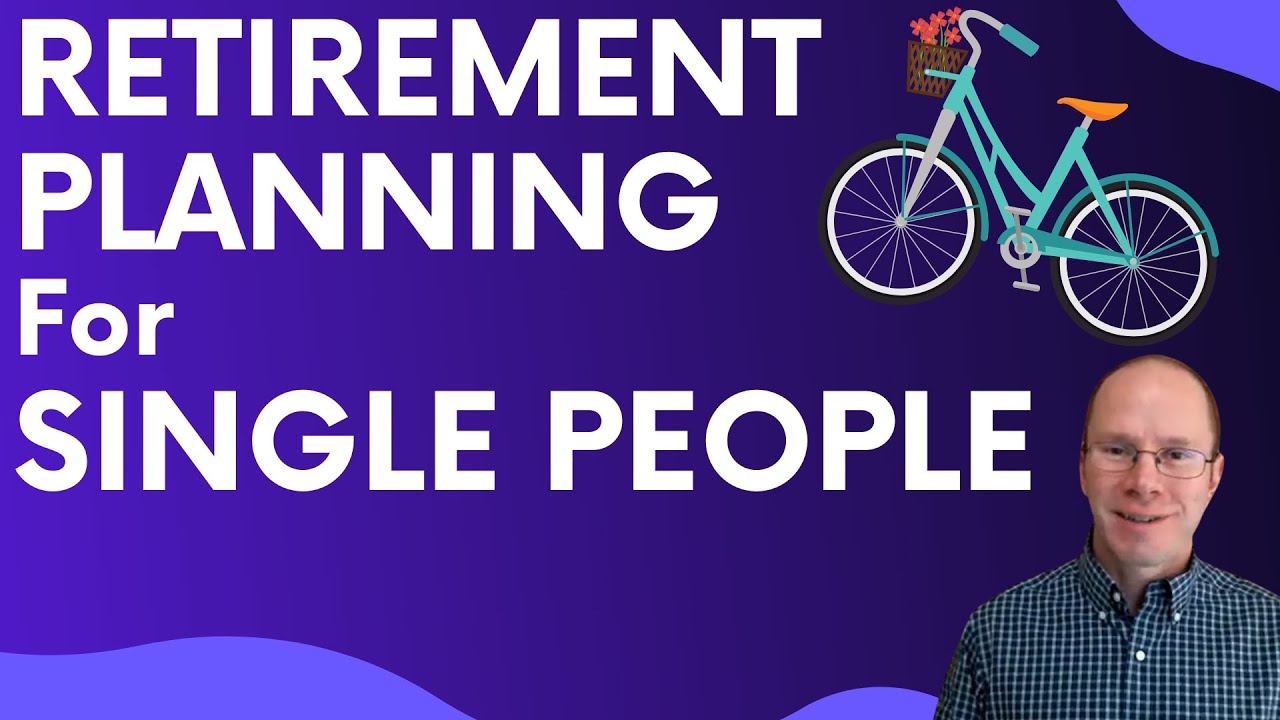
Retirement Planning for Singles
Jason 0 Comments Retire Wealthy Retirement Planning Tips for Retiree's
Retirement is a big deal for anybody, and that's especially true for single people who may be retiring with just one income and who may have built up a nest egg solely off their own savings. So, we know that single people can and do retire comfortably. In fact, one quarter of people over age 60 are living alone in their household, and that number is slightly higher for women, and that's, of course, due to women's longevity. So what we're going to talk about here is retirement for single people. First, we'll go over some averages to give you a rough idea of what the landscape looks like for single people, then we'll get into how much money you might need as you go into retirement, then we'll talk about some tips that can help improve the chances of retiring comfortably.
Let's start with the average retirement income for single people. So it's $42,000 on average for an individual in retirement, and that comes from the US Census Bureau. The median is a little bit lower at $27,000. So a friendly reminder of how this works: The median is the middle, so if you line up all of the survey results, people telling you what their income is, for example, that arrow points at the middle observation, which would give us the median down at the bottom.
But if we go to the average, that is going to get skewed by, in this case, wealthy people, for example, they have a very high income. When it comes to Social Security, the average is about $1,500 a month or $18,000 per year.Your level depends, of course on your earnings, if you had higher earnings during your working years, then you tend to potentially have a bigger benefit than that, and it could be lower, and then of course, your claiming age is also an important thing. If you claim early at age 62, you get a reduced benefit. That's likely to bring down the amount you get. Next, we have pensions, some people get an income from a job they worked at. That might be in the public sector as a teacher, a firefighter, that sort of thing, or even in the private sector, you could have a pension from your job, and those incomes just are all over the board, it could be high, it could be low, but these are different sources of income that people might have in retirement.
This is just a friendly reminder that this is just one video and it may cover some interesting information, but it's not specific to you so I hope you'll do a lot more research, hopefully check with some professionals and get some individualized advice, and that way you can improve the chances of things going well for you. So now let's talk about how much you might need as you go into retirement. Unfortunately, there's no single answer on what you need because it depends.
So the first step is to figure out what sort of income you're going to need, and I've got other videos on that, I'll put links in the description to get you some more information, but you can look at replacing a portion of your income, or you can just say, I want X amount of dollars per year, or you can go with other approaches, but first we need to know how much income you are hoping for. Next, we tally up your income sources, so that might be some guaranteed income that comes in from Social Security, for example, or from your pension at your workplace, but that forms a base of income and that might or might not cover what you need. But it gives us a base and then if we need to fill that in, we can supplement withdrawals from your retirement savings, so that might be out of your IRA, your 401, 403, these accounts that you have built up over time can provide supplemental income to help fill the gap between that guaranteed income you get and the amount you actually want to spend. There are a number of ways to figure out how much to withdraw and to set up different strategies, there might be bucking strategies, there might be withdrawal strategies like the 4% rule.
Or if you don't like that, make it the 3% rule to be safer, or take out more if you think that's not enough and you're selling yourself short. Ultimately, there are a number of ways to approach this, so you just pick one that works well for you, and again, I can point you to some resources on figuring that out. And finally, you will want to look at taxes and inflation, so during your retirement years, it's reasonable to assume that prices may increase on many of the things you buy, so we want your income to be able to increase as well, Social Security typically does rise, but maybe not at the same rate as the things you're buying, so your withdrawals may need to account for that. Plus we've got taxes. You typically will owe taxes if you're taking distributions or you're taking withdrawals from pre tax retirement accounts. If you have a pension that might be taxable as well. We just want to look at all of these things and figure out what your ultimate money left over to spend each month is going to be.
For an over simplified example, let's just look at Jane Doe. She's 60 years old, she's single, she wants to retire in about five years, she makes about 80,000 a year and has 700,000. A lot of people retire with less than that, a lot of people retire with more. I'm going to bring up my financial planning software that I use with clients, and we'll just go over kind of why there's no single answer on how much you need. Now, if you can tell me exactly how long you'll live and what the markets will do and what inflation will look like, we can tell you exactly what you'll need. But there are a lot of unknowns, so a lot of times we start with a probability of success and I'll go over what that means, and then we look at little tweaks and how different changes might affect that probability of success, so working an extra year might bring her from…

Let's say 75% to 84% likely to succeed. Now, success and failure are pretty complicated. They don't necessarily mean that you go completely broke, but you may need to make some adjustments, so let's talk about what does the success mean? We, again, cannot predict the future, so we say, Let's look back and say, You get dealt 1,000 hands. You're playing a game of cards and you get 1,000 hands. Some of those are good and some of those are bad, so the very good ones tend to be up here, near the top. And you actually end up with a lot of money left over. Some of them are not as good and you end up running out of money early. The median is, again, that one that's right in the middle when we line them up in order for best to worst. And so you might say, you're probably not going to get the best, you're probably not going to get the worst, although anything is possible.
So that's how we go with this likelihood of success. Now, maybe she doesn't want to work an extra year, so we can look at different ways of accomplishing things here. By the way, we've built in some long term care in case she does get sick and needs that at the end of life. She's looking to spend about 4,000 a month, that's after some health care costs that are going to inflate each year, and she's saving a decent amount in some 401K and taxable accounts.
Let's say she goes ahead and maxes out that Roth, is it going to make a big difference? Not really, 'cause she only has five years left. So what we do here is we start looking at all of these different variables and playing with the pieces and figuring out what does it take to make her successful at her retirement, or at least successful enough that she's comfortable making that transition. So here are some tips to improve your chances.
The first is to plan for long term care. If you're living on your own, you don't have somebody in the house who can help you do things, and it's arguable if even a couple is capable of managing this on their own… I mean, if you think about a couple, is one of the people physically able to move the other person around and do they have the skills to provide health care, and the time and the energy, frankly, to provide all that type of care? So it's important for everybody, but it's especially important for single people to plan for this care.
So you can look at getting insurance, you can look at budgeting for some costs, like we showed you in the software, you might want to budget for a much bigger number if you go into memory care or something like that with 24 hour supervision, it can get really expensive quickly. And you can explore different living arrangements, maybe doing things with friends or certain communities that might be a good fit for you. Next is to avoid leaving money on the table so if you were previously married and your spouse passed away or you've been divorced, you may be eligible for benefits. That's maybe from Social Security, you can potentially get a survivor's benefit, or if you were married for at least 10 years and you've been divorced, you can potentially get spousal benefits on your ex spouse's work record.
It's just important to explore all of these to see if there are any resources available for you. Next is to make a plan, and I am of course biased as a financial planner, but I think it is really helpful to go through the process, and the main goal isn't to get a big document that tells you what your financial plan is. Instead, really, the benefit is going through that process and learning a lot about your finances as you do it, and in that process, you get an idea of what the risks are, how you're doing, you might get confidence and clarity on whether or not you can go ahead and retire, if you should do certain things or not.
It's just a very valuable process for a lot of people, but I'll leave that for you to decide. If you found this video helpful, please leave a quick thumbs up. That gives me feedback that this is something you might enjoy more of, so thanks for watching and take care..
Read More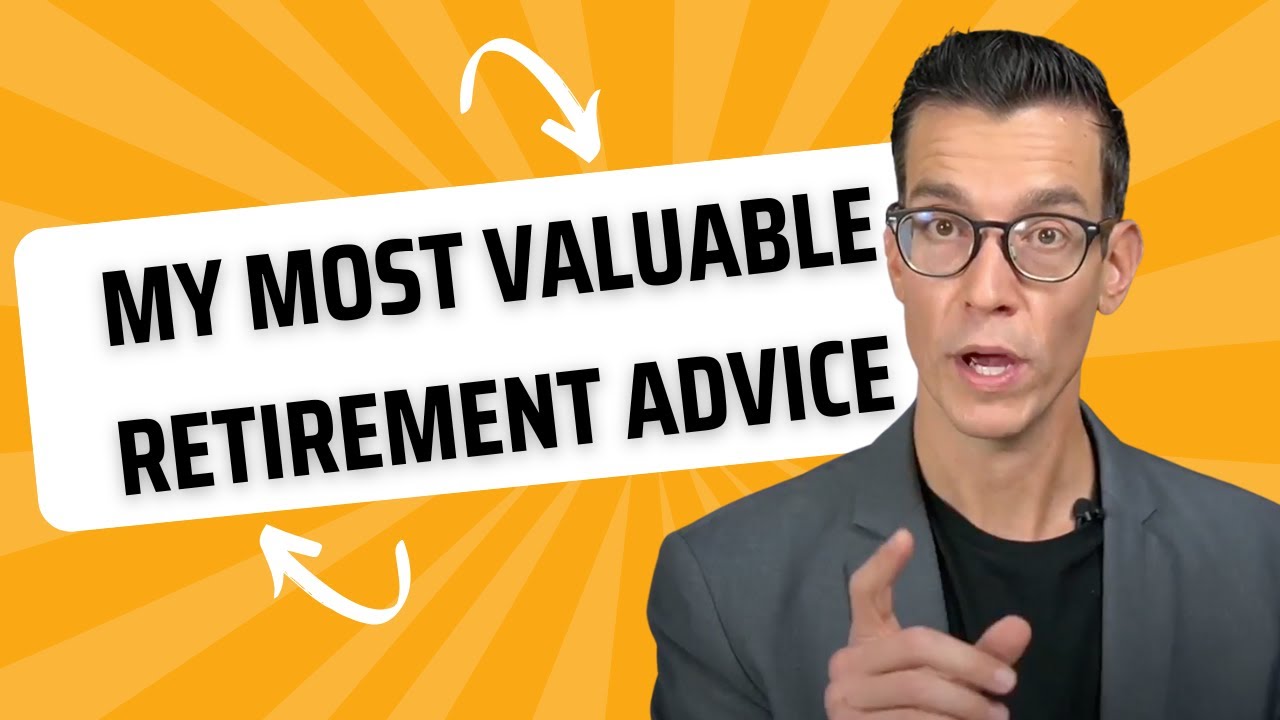
Why Some Retirees Succeed and Others Live in Worry – 5 Retirement Truths
Jason 0 Comments Retire Wealthy Retirement Planning Tips for Retiree's
I want to share one of the most valuable pieces of retirement advice that I've ever heard if you're thinking about your retirement and you're wondering if you're doing the right thing or think that you should be doing something different or if you're just worried about all the things going on right now whether it's the economy or the markets or the value of your accounts be sure to watch this video because I'm going to share the retirement truths that every retiree goes through and it's these things right here we're going to cover today and every retiree goes through it and it they experience this in retirement so it's going to go over this and then also what to expect in retirement and then how to give yourself the best chances of maintaining your lifestyle in retirement as well now the negative of these retirement truths that we're going to look at is that many of them lead to increased uncertainty or worry about your retirement one of our goals though as we're thinking about it is really the opposite of uncertainty or worry in retirement it really should be more about confidence right the next years really all the way up until you pass away wait these are the the magic ears these could be the best years of your life and I know that because there's an actual study a research study uh proving this so let me pull that up really quick and show you the results and I'll link to it below people were asked to score their life satisfaction from zero to ten where 10 is the best possible life and then zero is the worst possible life and this is really just the average score by age and I thought it was encouraging to see that life satisfaction tends to increase as you can see as we get older and then it tends to Trail off as we get older but really the area the the period of time we want to focus on is that this is the magic time and we know this to be true as well because we've helped hundreds of pre-retirees move into retirement with confidence and excitement and these were the people who were coming to us that were feeling somewhat unsure or not 100 confident with their money plan and our firm streamline Financial has been around for 24 years and we've made it through quite a few bad Market periods with our clients and by the way if I haven't met you yet I'm Dave zoller and I own streamline Financial with Tim and Luke and Sean and if you're working with an advisor now that's mainly focused on investments and investment planning but doesn't talk about these key retirement strategies like the tax efficient withdrawal planning and income planning or just tax reduction overall feel free to reach out to us through the website now we don't always have time but I'll get back to you either way so let's get into this first truth in retirement it will be common to have that thought of maybe I should be be making a change or should I be doing something different it'll be normal to feel this way in retirement especially when you see the news or you're listening to friends talk about their finances there's this feeling or this thought of really making us doubt our current plan which causes some people to make more emotional decisions instead of making smart financial decisions and a good way to avoid this is really to avoid this feeling is by having an understanding of your plan which really leads to more confidence with what you're doing and having a plan for both the good times and also the bad Mark of times so that you know that you're prepared for either one of those and I'll give you some ways to achieve this coming up in this video now on to the second thing that comes up in retirement that we just have to be prepared for is we need to expect bear markets right you've most likely lived through a lot of them already and really in retirement though they feel a little bit different usually worse but because of the frequency creating a plan with bear markets in mind and really big Corrections built into the plan is a smart thing to do that way you don't have to worry when they eventually come now if you're not sure how to model out these various what-if scenarios or bad Market scenarios for your plan then you may want to talk to a cfp or check out my favorite retirement income planner below this video you should see a link to it it's one of the best consumer facing planners that I've seen and it doesn't cost thousands of dollars like the ones that we use for our clients the next thing to bring up is for pre-retirees who are close to stopping their wage especially if that's during bad markets they may think should I work a little bit longer maybe just one more year to kind of make it through this this difficult period we actually had a client call us up about five months ago and uh no she was five months into retirement and she said something like it seems like so much bad news is out there and what's going on with the markets I'm wondering if I it would have been better if I should have just kept working so we reviewed her plan and because we built in to her plan this expectation of bad markets everything looked great and and really the only reason to keep working would be if she really enjoyed this sort of work that she was doing and it brought her some some purpose but she didn't so it was great it was great confirmation that she was still on the right track so if this sounds like you take a look at another video I recorded I'm gonna either link on this screen or it'll be below and it gives a few real examples of what working an extra year might look like in a financial plan the next thing to know is that no one really knows what's going to happen next it seems like everybody has a prediction on TV or YouTube or at the dinner table with family or with friends and no one really knows what is definitely going to happen we know this uh in a logical way because you know there's that saying if you put 10 economists in the room together and they come up they need to come up with a conclusion they'll come up with 12 of different answers when they walk out knowing that it's important to prepare your investment plan for that four economic Seasons that we may go through in the future since we don't know which one we're going to go through next so just as as an example you've seen it before the four economic seasons are higher than expected economic growth or lower than expected economic growth and then higher than expected inflation or lower than expected inflation and there's asset classes that can do well in each one of those now again we don't know which way we're headed but having asset classes and each one of those potential Seasons that could be beneficial now that's just my opinion and really it's for all of this talk to your own Financial professionals before doing anything like this now on to the next one which really has more to do with human psychology than investment strategy and then after that I'll share the the really the most helpful piece of advice that I've heard related to retirement planning but if you'd like this so far please click on the the like button and and maybe this video can help somebody else going through the same things that that you're looking forward to so the next truth is in retirement we may have a tendency to compare ourselves to others the grass is always greener on the other side of the fence really throughout life that's we've got that tendency to compare it to others but it can harm us in retirement too if we do a video on this channel that mentions a dollar amount as an example we don't want that to really make you feel better or feel worse about your current situation because you know we help high net worth families at streamline Financial we sometimes mention big numbers but we don't want it to be about the numbers we really want to communicate just the principles and the strategies that can can really be applied to to anybody's finances and there's always going to be people with more than us and then there's always going to be people with less than us and the one who wins is the one who's content and at peace most at peace with their current situation you know that saying if I want to be able to practice being content with a little and I want to be able to practice being content with a lot and and you know healthy competition that's okay but comparing ourselves to someone else because uh you know if it causes us a feel of lack or less than that can hurt our retirement plans because that leads really back to that first point that we talked about in uh in this list of feeling like we should be doing something different for example if we see a guy on the internet and he's investing a certain way or he's deciding he's changing up his entire strategy um because of what's happening with the economy then that may cause us to feel like we should be doing something different and then start to increase the emotional level of uh of our decision making instead of staying to strictly logical or financial levels but again it's a normal feeling to feel that worry or fear or anxiety um with what's happening during during current periods but one of the most helpful pieces of advice that I've heard that we can apply to retirement planning is really the difference between those two words fear and anxiety knowing the difference between those two is actually very very helpful as we're planning retirement and talking about money that is if we want to feel better about what we're doing right now when we think about fear and anxiety we might think of them as being the same thing but actually they're completely different things and let me just pull up these two definitions if I can really quickly fear is a caution over a real and present danger and then anxiety is a worry over an imagined future danger now fear if we've got something right in front of us then it's obviously a very helpful tool for us as humans anxiety though is not always a helpful tool as as we're trying to process things partly because these anxieties there's nothing we can do to control or influence them you may have seen this drawing from Carl Richards before about things that matter and then things I can control here's a place to focus and then another way to look at it is we actually sent this to clients not too long ago on a video of what you can't control and what you can control so we can't control the markets and inflation and what they're doing with interest rates or what's happening in the news or the world or tax laws or the elections but a lot of these things actually do relate to things that we can control for instance you know markets are inflation or interest rates your portfolio allocation you can control that you can control when to pay taxes when it's related to in investing you know as we're talking about Roth conversions or the the costs the tax cost tax drag on some of the portfolio and not to get too nerdy about these things but two of the biggest things that we've seen is this idea of not controlling the news but what we can control is news consumption we've seen a big shift with uh some people who instead of someone who wants to consume the news they switch from TV news to reading news where you have a little bit more control of what's coming at you versus TV is just the next thing is coming at you if you know what I mean I don't know if that's if I if I'm explaining that the right way but back to the this video all the things that we mentioned before earlier here um a lot of these can be anxiety-inducing things as well right the severity of a bear Market or not being able to predict what's going to happen next in the world or comparing ourselves and doubting our plan or thinking that we don't have as much as as we wish we had when it comes to to money or the you know what if this happens and what if this happens how is that going to impact my plan and that can lead that sort of thinking can lead to paralysis and really no action being taken but what if you had a plan that was built in to show those different what-if scenarios so instead of the unknown future danger you're able to get more concrete scenarios in the plan as a result that's what I would recommend once you get get it out in the open then it becomes a lot less scary we both know that so either find a great certified financial planner who can show you that and show you the what-if scenarios or check out the the DIY planner or a different planner that helps you put in those what-if scenarios as well so it becomes less scary so don't forget anxiety is it can be the thief of Dreams it takes you away from enjoying the the present moment and it stops you from even taking the right action to make things better in the future because it really just makes you only focused on on the negative as you're you're moving through life that video that I mentioned earlier is called why delaying retirement might not be a good idea if you're pre-retirement and you're thinking you want to work a little bit longer because of what's going on take a look at that one coming up next or below and then I'll see you in the next video take care foreign [Music]

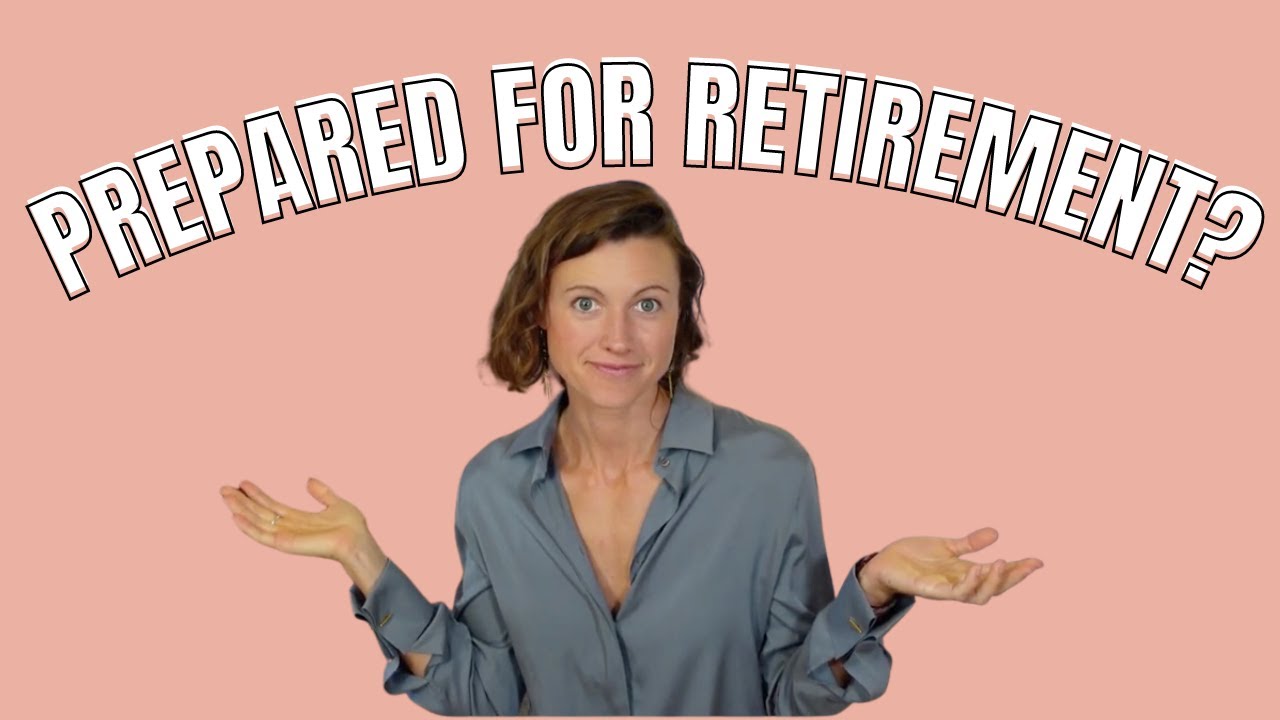
Your Tell-All Guide to Saving for Retirement
Jason 0 Comments Retire Wealthy Retirement Planning Tips for Retiree's
I'm Britt, the co-founder of Dow Janes, and
every single week I have someone asked me how they can start saving for retirement
or how much they need or if it's too late to start saving. Today, I'm going to share my
top tips for starting to save for retirement. And don't worry; it's easier than you think.
If you want more ideas for saving, investing, and making the most of your money,
don't forget to hit the subscribe button and the bell so you don't miss any new
videos. And if you liked this video, definitely give it a thumbs up.
All right. So, there are some misconceptions about retirement saving that I want to address.
First, one thing people often ask us is how much do I need for retirement? What's the magic number?
And the truth is it varies widely.
It depends on where you want to live or what lifestyle you
want to have or when you want to retire. Are you trying to retire at 40 or at 70?0.
If you take anything away from today, I want you to just start saving 20% of your pre-tax
income for your retirement, and you'll be fine. To learn more though, keep listening.
Okay. So how do you start saving for retirement? What you do is you follow the roadmap
steps. You make sure you're doing things in the right order. So we have a whole nother video
on the roadmap steps, but just to recap, the first thing you want to do is make sure
you're spending less than you make each month.
The second thing is to pay off any
high-interest rate debt you have, which is anything with an interest rate over 7%, then
you want to build up an emergency fund.
And then once you have those three things in place,
you're ready to start saving for retirement. So, to do that, you're going to find your monthly
savings number. You can use a simple retirement calculator to figure out how much you want to have
in retirement. I'll link to one in the description below. What you'll do is you'll add in your
current savings, anything you've already saved for retirement already, anything you expect to get
from social security, and then you'll adjust the savings amount to see exactly how much you need
to save each month to be on track, to meet your retirement goals. It's a super easy calculator,
you just enter the numbers. It'll spit out exactly what you need to do, and that number, that savings
amount, that's going to be your monthly goal.
So, if you don't already have an account,
you'll open up a retirement account, and that's where you'll begin to transfer that
savings amount to that account each month.
Where should you save your money? There are
different types of retirement accounts.
So, if your employer offers matching, then you'll
want to open a 401(k) or 403(b). In addition, you can open a Roth IRA or a traditional IRA.
IRA stands for Individual Retirement Account. If you're self-employed, you can also open a SEP
IRA. So for the Roth traditional or SEP IRAs, you can open those at any brokerage places
like Vanguard, Charles Schwab, Fidelity, or with a robo-advisor like Wealthfront or
Betterment. Any of those places offer retirement accounts. So, it's super easy to get started.
Then if your employer offers 401(k) matching, you definitely want to advantage of that.
So, what is 401(k) matching? It's when you save money for your retirement and your company
contributes the same amount that you save. They'll often match up to a certain amount
or a certain percentage of your salary.
So, if your company matches 4% of your
salary and you make $5,000 per month, you could contribute $200 per month towards your
retirement, and your company would contribute an additional $200 per month.
So you basically get
$200 in retirement money for free each month.
It's a way for companies to incentivize
their employees to save for retirement. So, if your employer offers this, definitely take
advantage of it. It's the easiest free money out there. And make sure you're contributing the
maximum amount that they're willing to match.
Okay. The next thing you'll do, if your employer
doesn't offer matching, or if you're, um, if you've already maxed that out, the next thing
you want to do is max out your contribution to your Roth or your traditional IRA. So, each year,
the IRS limits the amount that you're allowed to contribute. In 2021, the amount is $6,000.
If you're over 50, you have an extra bonus. You can contribute $7,000. So, try to contribute the
maximum amount to those accounts each year. So, max out your 401(k) to where your company matches
max out your Roth or your traditional IRA. If you're self-employed, you could also contribute to
your SEP IRA. If you're a great saver and you're saving more than those amounts, you can open
your own brokerage account.

So, a non-retirement account, and save the money there. You can use
that money for whatever you want, but you can know that you're saving that for retirement.
Once you've saved the money in those accounts, what you're going to do is invest that savings. So
for the easiest and simplest way to get invested, you'll invest in target date funds. These
are pre-made portfolios that allocate your money to a mix of stocks and bonds that
are appropriate based on your age.
If you want to invest in index funds yourself,
or if you're picking a fund that your employer offers, then you can use these rules of thumb.
Generally, you want your portfolio to be invested in the percentage of stocks that is equal to
120 minus your age.
So if you're 20 or younger, you want to have 100% of your portfolio
in stocks. If you're 30, you want 90% in stocks, for example. And just a quick
note that if you invest in target date funds, that will do that for you. The allocation
changes the allocation of stocks and bonds changes over time as you get older.
One quick thing to know is that you actually don't need to take your money, your
retirement money, out the year that you retire. You can leave it invested while you're in
retirement and just take out what you need, which means you actually have more time
than you think for your money to grow.
So, hopefully that gives you some peace of mind.
If you're getting started later in the game, if you're wondering how much you should be
saving in retirement savings each month, we have a couple of rules of thumb for you.
And
the bottom line is the sooner you start saving for retirement, the less you actually have to save,
because if you start sooner and you invest that money, it will grow and it will grow over a longer
period of time. If you're starting later in life, you have to save more because it has less
time to grow. So, if you're in your twenties, you can save 15% of your pre-tax income each
month and you'll be set. If you're starting in your thirties, you want to save 20% of your
pre-tax income. If you don't have anything saved and you're just starting to save for retirement in
your forties or your fifties, you'll need to save even more since you're starting later and your
money has less time to grow. If this is you, watch out for our next video on how to start saving
for retirement if you're in your fifties.
All right, the sooner you start saving for
retirement, the easier it is.
So, here's a recap of the steps: One, follow our wealth building
roadmap, so you know what to do in what order. Two, find your monthly savings. Number three, open
a retirement account. Four, take advantage of free money. Five, max out your contributions. Six,
invest your retirement savings, and seven, contribute to your retirement savings each
month. If you want to learn more about how to build your wealth and invest your retirement
savings, then definitely check out our webinar, Think Like an Investor. The link's in the comment
below.
All right. Thanks for watching..
Read More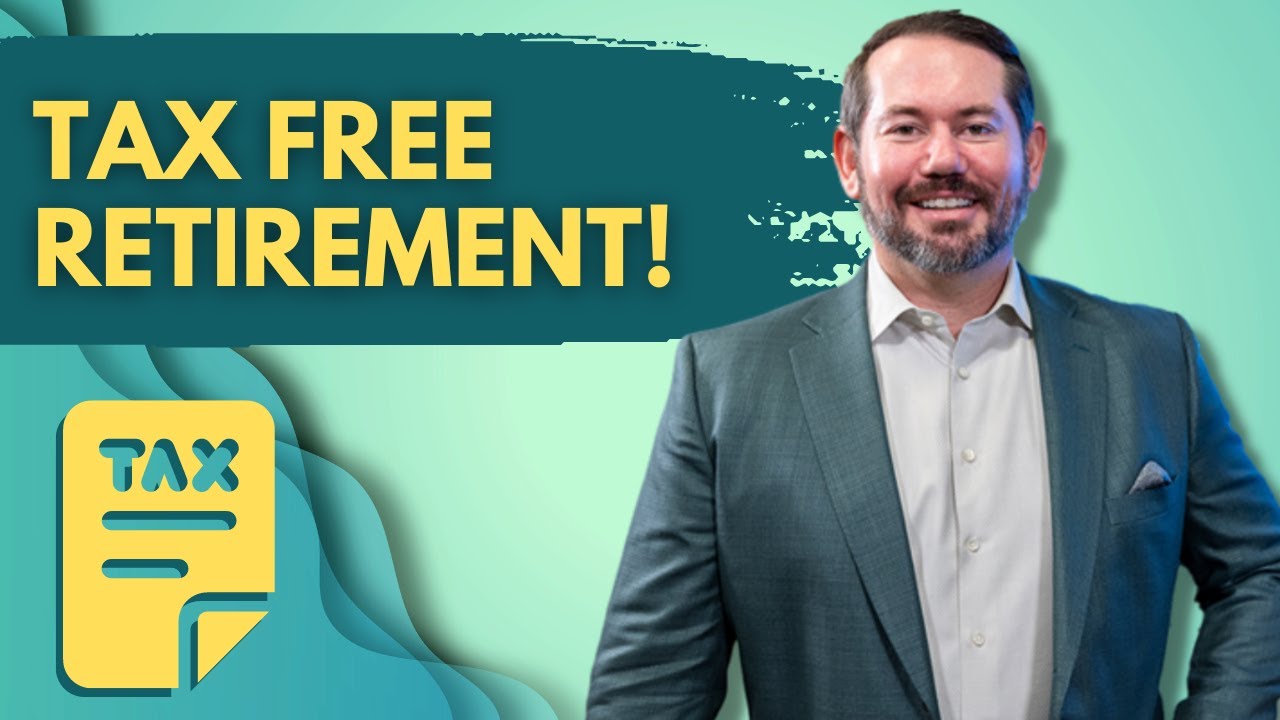
2 Retirement Tax Planning Strategies To Save THOUSANDS In Your Retirement Portfolio!
Jason 0 Comments Retire Wealthy Retirement Planning Tips for Retiree's
how would you like to save hundreds of thousands of dollars potentially in taxes in retirement well these two strategies I'm going to go through today when combined together have the potential to do just that now if you don't qualify for net unrealized appreciation because you don't have company stock inside your 401k you can still qualify for zero percent taxes on your long-term capital gains and dividends so when we combine these strategies together it creates a very powerful tax and income planning tool that you can use for your retirement [Music] foreign as you can tell I'm pretty excited about this video because we're going to discuss two tax planning strategies the net unrealized appreciation which I've not yet done a video on the YouTube channel about and also the zero percent taxation for long-term capital gains and dividends and you're going to want to stick around until the end of the video where I incorporate these two strategies into a real life financial planning case now unless you've searched net unrealized appreciation to find this video there's a pretty good chance you've never heard of net unrealized appreciation so in its most basic form it's when you have company stock that's been issued inside your 401k you have the option of rolling that money outside of your 401k not into an IRA but rolling it out only paying income tax on the basis that's been distributed and potentially pay long-term capital gains tax on the appreciation so that appreciation from where it was issued to where it is whenever you roll it out and retire or sever from service or become 59 and a half that's what's called your net unrealized appreciation we're here in Houston Texas where we have a lot of client clients that worked at Exxon Mobil or Chevron or some of the other big oil and gas companies we also have clients from all over the country that work for other companies that can take advantage of this net unrealized depreciation strategy so I'm going to use Exxon because we come across this plan a lot we're very familiar with the Exxon retirement plan and I want to illustrate how this concept works and there's some nuances here and there's also some financial planning considerations and of course tax ramifications that we're going to go through but if I worked at Exxon let's say from 1995 to 2020 and as part of my compensation I receive shares of stock each year over the course of my employment so these numbers are not historically accurate but I want to convey the the principle here so in the beginning years if Exxon was trading at twenty dollars and I received a hundred shares and then next year maybe I received them at 22 dollars per share and twenty five dollars per share and over time as I've received more shares as part of my compensation package the value has typically increases the price at which you were issued those shares in the year you received them is what's called your cost basis so if we do this Nua rollout that's the amount that you'll have to pay income taxes on but it's a really cool opportunity here because over time most stocks appreciate in value Exxon today is at a hundred and sixteen dollars per share so the concept of Nua is if I was issued stock at twenty dollars a share and I keep it in the IRA and now it's at 116 dollars a share that's a massive amount of capital appreciation and if I roll it to an IRA and distribute it at that point or at some point in the future I'm going to income taxes and that can can lead to a pretty big tax liability now we're down the road when I need income but if stocks appreciate it over time we typically have a mixed cost basis when it comes to the amount of shares that we've received from the company so first thing to know here and first thing to ask your company is do you guys provide a breakdown of the cost basis on an annual reporting period or do you take the average cost basis so we come across some companies here that they will provide you the information of the exact cost basis and the amount of shares that you've received in each year in that case we can really cherry pick which shares we want to roll out and really take advantage of this strategy because typically we're going to take the lower cost basis ones some companies don't allow you to cherry pick based on the lower basis shares that were issued they calculate an average cost basis for all the shares issued so this is not nearly as advantageous as being able to cherry pick sometimes it can still make sense especially if it's an older 401k or if it's a stock that has really really appreciated since those shares were issued in the average cost basis is down so this video my primary purpose is to help educate you around the financial planning considerations of the Nua rollout so I'm not going to cover all the rules and reg surrounding it I'll do that in a later video though but a couple things you should know this becomes an opportunity whenever you sever from service or typically when you're entering retirement there are some other qualifications but we'll cover those later now if you sever from service prior to age 55 you will be subject to a 10 penalty on the amount you distribute so just be aware that if you're under the age of 55 you've severed from service you have company stock inside your 401k that that 10 penalty for early distribution still applies we have Exxon this 401K here so the total value is about 1.5 million in this hypothetical example the shares the tote in totality the shares have been issued over the course of the working career equals about a six hundred thousand dollar cost basis so I'm going to use the example here where we can cherry pick the individual shares so the next question becomes which shares should I consider doing the Nua rollout because I don't have to roll all six hundred thousand basis out in the real world typically this 1.5 million of fair market value may also be comprised of mutual funds such as growth funds income Etc within the 401K for the purpose of this example Exxon stock is valued at 1.5 million dollars the cost basis of those Exxon shares within the 401K is 600 000.
Just want to point out in the real world typically everyone does not have all their money invested in their company stock but I've I've absolutely seen that over the years so the question becomes which shares do we want to take advantage of the annual rollout with the general rule of thumb is the lower cost basis Shares are more attractive and that's determined by the the value of the stock today anything above 50 percent cost basis to fair market value typically we don't want to consider for Nua now there are some extenuating circumstances sometimes with financial planning considerations that it may make sense but when we do the math and we extrapolate out looking at the value that you would have in the ira versus paying taxes on the basis now annual taxation for growth dividends Etc the Breakeven point isn't that attractive when we look at these shares that are above 50 percent cost basis to fair market value I personally like to see them around 20 or 30 percent really tops so whenever you have shares that are 10 15 20 25 cost basis to fair market value those are typically very attractive opportunities and in some situations Thirty thirty five forty percent could possibly make sense it just depends on the overall financial plan that you're putting together in other circumstances so this is a tax analysis so you may want to reach out to your CPA for help or assistance in doing this or your financial advisor if they're qualified and skilled enough to help you make these determinations I want to run through some numbers now so let's assume for whatever reason this person decides to do the whole Nua rollout so just so we understand the how this functionally works the 600 000 rolls out of the 401K into a non-ira account income tax is due on that six hundred thousand dollars you're probably looking at about a 27 28 maybe 30 percent effective tax rate we'll go with 30.

So 100 eighty thousand dollars of income taxes would be due on the basis being rolled out but in this scenario you're not just rolling out 600 000 That's the basis you're actually rolling 1.5 million dollars out of the 401K and only paying income tax on the basis now if you sell it immediately the net unrealized appreciation is the difference between the basis and the fair market value so you have nine hundred thousand dollars of gain there so if you sell that nine hundred thousand you're looking at the more preferential long-term capital gains tax that would be a pretty big tax still so the question becomes the are what planning considerations should we hold on to this stock do we feel comfortable having this much in one company what is our other wealth what if we break it out over a few years so this is what we're really going to dive into now I just want you to understand how this actually works in regards to the functionality okay let's cover how this actually works so we take the Exxon stock the basis is 600 000 but the full value is 1.5 million so if in this example we decide we want to do it all we would roll the full 1.5 million out of the 401K it will go into a non-ira account but you only owe income taxes on the basis the 600 000.
If you sell the stock immediately you will owe long-term capital gains tax which is a more preferential rate than income taxes at this level of income on the difference between the basis and the fair market value or nine hundred thousand there but you don't have to sell it right away if you don't sell it right away and then you sell it six months later you'll be subject to short-term capital gains tax because you're holding period rules take take into a place or taken to effect if you don't sell it immediately but if you wait 12 months after the distribution date 12 months in one day then you qualify for long-term capital gains tax treatment so some of the financial planning considerations are now what are the income taxes due what is my income and tax plan year one year two year three of retirement how does this fit into that overall tax and income plan and how do we optimize how do we reduce the total taxes we pay while maximizing the value that we retain if we have to pay income taxes on six hundred thousand dollars you're looking at an effective tax rate there of about 27 28 maybe 30 percent so 30 on 600 is a hundred and eighty Grand so you'd write that check to Uncle Sam and you would have 1.5 million outside of the 401K in the more preferential tax environment of long-term capital gains and dividends now you would have annual taxation on these dividends so that's something else we need to consider and we also need to consider future tax rates and make assumptions with what do we think income tax rates are going to be in the future long-term capital gains and dividend rates all of these things go into the analysis but for now this is the logistics of how it works we roll it all out pay income taxes on the basis we can either sell it immediately and pay long-term capital gains on the differential or we can hold it and if we hold it past the distribution date sell it within 12 months short-term capital gains sell it post 12 months long-term capital gains okay so I want to dive deeper into the two options we have just high level so option A is We Roll everything to the IRA we do not take advantage of the Nua rollout eligibility things that we have to consider here is future tax rates rmds other income sources and the secure act now this is not an exhaustive list this is just some of the big ones we have to take and consider future tax rates because when everything is inside that tax infested Ira when you distribute it in the future you have to pay income taxes you've given up the ability to take advantage of long-term capital gains and dividend taxes which are typically a preferential rate rmds Force distributions from your retirement account and when added with other income we oftentimes see people who did not plan for this have 150 200 250 even more of income because of required minimum distributions and their other income so when doing this analysis we have to extrapolate out and look at these factors to help make the decision today secure act I threw this in here because it forces distribution of your retirement accounts if they go to a non-spouse beneficiary that's more than 10 years younger than you full distribution of the retirement account within 10 years so if you have kids and it's important to leave this money to your children if they have income and they're working and now your retirement account has to be fully distributed within 10 years that could be a massive amount of income going on top of their income which now 30 40 50 60 potentially of your retirement account has gone to Uncle Sam if you live in a state with income taxes that could be an issue as well inheritance taxes so a lot of issues here rolling everything into the IRA you can be hit with um pretty big income taxes down the road option b is we do take advantage of the Nua rollout either wholly or in a partial Nua rollout how that works is we would take the shares that we do decide to take advantage of this strategy and we roll them into the non-ira account some things to consider there is that what are long-term capital gain rates now what are they possibly going to be in the future but also we have annual taxation of the dividends and if we're buying and selling inside that account whatever we do not roll into the non-ira account with the strategy the rest of the funds from your 401k go into the IRA and then of course whatever's left here we have the same considerations that I went through over here so now there are financial planning considerations here let's say I was at 35 cost basis to fair market value so I'm kind of right there where mathematically it may not make sense but how much non-qualified money do I have how much essentially I'm saying how much do you have outside of your retirement accounts because if you're entering retirement and all that money is inside that tax infested 401K then you don't have any ability to manipulate what goes on your 1040 your tax return by manipulate I mean we determine which accounts were withdrawing income from to manage our taxable income that we report to the IRS if we pull from our non-qualified accounts think your bank account well you don't have to report that so if you need a hundred thousand a year we pull 50 from your bank and 50 from your IRA you get your 100 000 but only fifty thousand goes on the tax return that's how we can manipulate that so how much non-qualified money do you have if you don't have much we may want to consider doing a little bit higher Nua rollout because even mathematically it may not make sense when we just compare that decision in isolation to do or not to do the Nua rollout but when we now look at the other benefits that we're receiving such as the ability to do Roth conversions the ability to manipulate what goes on our 1040 the ability to possibly qualify for a health care subsidy if you retire before the age of 65 by managing the reportable or taxable income that's reportable we can qualify for a subsidy so this is why we're so big on financial planning because as you can see it's not just about Investment Management in retirement that's important absolutely but when we tie in financial planning with Investment Management we can create some really optimal scenarios where we're creating a ton of value and helping you have more income pay less tax and ultimately have more value throughout the course of your retirement okay this is the part that I mentioned in the beginning of the video where we're going to tie into kind of a real world plan planning case so we laid the groundwork for what Nua is and some of the considerations that you have to make in order to determine if it makes sense for you to do the Nua rollout so what I want to point out here is the tax and income plan for retirement years one two and three for someone who takes advantage of the Nua rollout because the question becomes when do we sell that stock if we have 30 40 50 percent of our entire net worth in our company stock it's pretty risky to hold on to that position just so we don't pay more in taxes so here's where we're going to tie the financial planning considerations of the real world application and decisions we have to make on the Nua rollout with years one two and three of someone just entering retirement one of the big risks is if we roll it out the company's stock and we decide not to sell it because we don't want to pay the long-term capital gains immediately if we hold on to that that concentrated Equity position we have increased our risk now there are investment strategies that can be used such as buying a put option or what we call an Equity caller but I want to just talk about the tax and income plan here so in this scenario client rolls out the annual way so they have a large concentrated Equity position and they've paid income tax on the basis but do not want to sell the company stock yet so as part of the tax and income plan what I want to show you is we could break this up so year two year three and even year four possibly depending on the size of the concentrated Equity position Company stock where zero percent taxes essentially so we have total income here of a hundred and twenty thousand so what this is the tax and income strategy where we're generating income year two of retirement not year one because in year one you've done the the Nua rollout you have a big tax liability from paying income taxes on the cost basis of that company stock so here's your two so year two the the tax and income strategy is don't take anything out of the 401K no Roth conversions we're going to sell the company stock that we previously rolled out take advantage of Nua and we can have a hundred and twenty thousand dollars of income here as long as it's all capital gains and dividends your total tax liability 458 dollars now what I've done here is assumed twenty thousand dollars of dividends because if you have company stock and you roll it out it probably paid some dividends so 20K there and a hundred thousand of long-term capital gains we're realizing we're recognizing so this is darn near zero percent on a hundred and twenty thousand dollars of retirement income and we're divesting from that company stock now again some risk management strategies we could have an equity caller or put option helping to support downside volatility of that concentrated position but just taxing in complaining wise I want to show you how how this can work out so here now I've added 125 000 of long-term capital gains with twenty thousand dollars of dividends total AGI 145 000 the total tax 4208 on 145k of income 2.9 percent so again we've divested so maybe this is year two of retirement or year three we've divested from the company stock we've reduced our risk we've provided the income that we needed for retirement and we've done so in a way that's tax advantaged same thing goes on now I wanted to point this one out because I've here I've thrown in the same 20 000 of dividends 125 000 of long-term capital gains so we're selling the stock again but now we also take advantage of a twenty thousand dollar Ira distribution so this is which accounts do we pull income from in retirement how do we generate income what's the tax plan total AGI comes up to 165 the total tax is 7208 but here's the cool part the IRS ordering rules for how you pay tax on income based on where that income is generated the distribution from the IRA is actually tax-free but what happens is when you take money out of the IRA it brings some of those long-term capital gains into taxation so I did a video not too long ago where we talked about adjustments and Social Security and IRA distributions and wealth conversion taxes the tax code is filled with these where if we we take one more dollar of income it brings one other item into now a taxable State such as Social Security or long-term capital gains or dividends so just just be aware of that I guess 165 000 of income seven thousand two hundred and eight dollars in income taxes representing a four point four percent tax rate so now one two three four years into retirement we've divested the uh concentrated stock risk we provided income and a very tax advantaged manner we still have that Ira with a lot of money in it to deal with but once this is done we would probably at that point start down the Roth conversion path now every situation is different but hopefully these topics and ideas and and considerations when it comes to risk management income planning tax planning and retirement will help you have a better retirement if you want to learn in more detail how to potentially pay zero percent in long-term capital gains and on your dividends click this video right here I did a couple years ago where we do a deeper dive into the special tax advantage [Music] thank you
Read More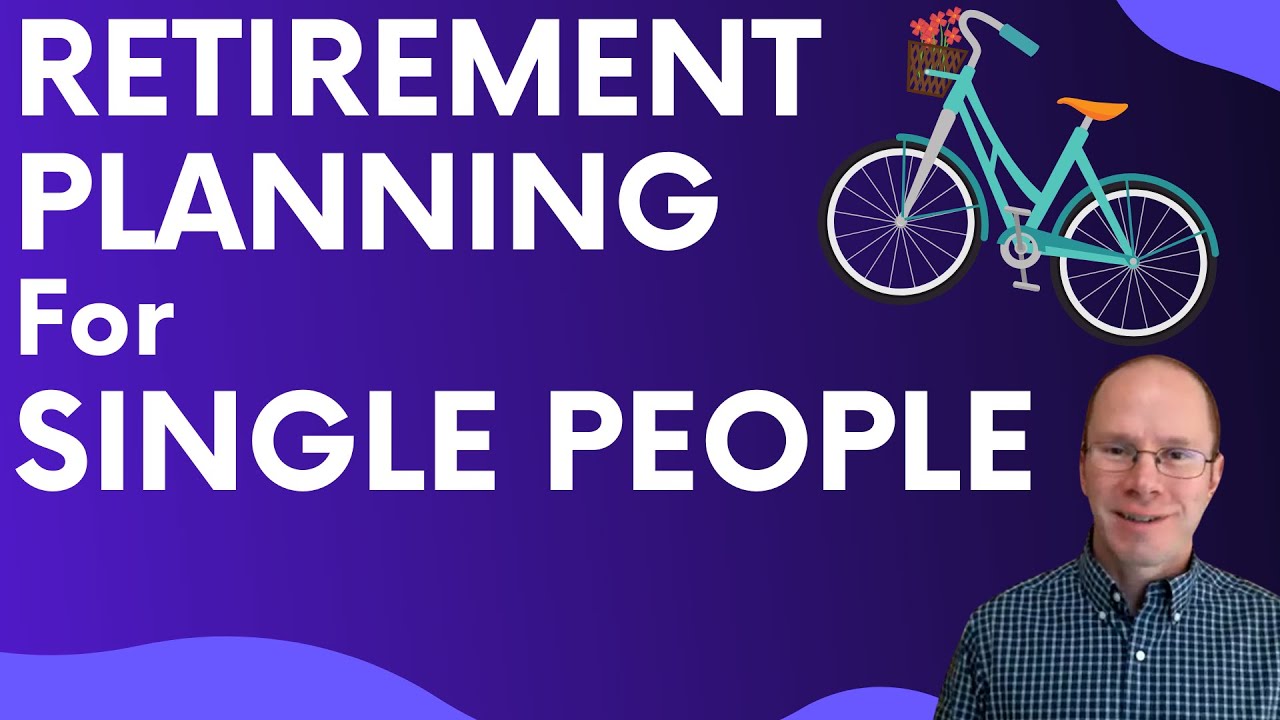
Retirement Planning for Singles
Jason 0 Comments Retire Wealthy Retirement Planning Tips for Retiree's
Retirement is a big deal for anybody, and that's especially true for single people who may be retiring with just one income and who may have built up a nest egg solely off their own savings. So, we know that single people can and do retire comfortably. In fact, one quarter of people over age 60 are living alone in their household, and that number is slightly higher for women, and that's, of course, due to women's longevity. So what we're going to talk about here is retirement for single people. First, we'll go over some averages to give you a rough idea of what the landscape looks like for single people, then we'll get into how much money you might need as you go into retirement, then we'll talk about some tips that can help improve the chances of retiring comfortably. Let's start with the average retirement income for single people. So it's $42,000 on average for an individual in retirement, and that comes from the US Census Bureau. The median is a little bit lower at $27,000.
So a friendly reminder of how this works: The median is the middle, so if you line up all of the survey results, people telling you what their income is, for example, that arrow points at the middle observation, which would give us the median down at the bottom. But if we go to the average, that is going to get skewed by, in this case, wealthy people, for example, they have a very high income. When it comes to Social Security, the average is about $1,500 a month or $18,000 per year.Your level depends, of course on your earnings, if you had higher earnings during your working years, then you tend to potentially have a bigger benefit than that, and it could be lower, and then of course, your claiming age is also an important thing. If you claim early at age 62, you get a reduced benefit. That's likely to bring down the amount you get.
Next, we have pensions, some people get an income from a job they worked at. That might be in the public sector as a teacher, a firefighter, that sort of thing, or even in the private sector, you could have a pension from your job, and those incomes just are all over the board, it could be high, it could be low, but these are different sources of income that people might have in retirement. This is just a friendly reminder that this is just one video and it may cover some interesting information, but it's not specific to you so I hope you'll do a lot more research, hopefully check with some professionals and get some individualized advice, and that way you can improve the chances of things going well for you.
So now let's talk about how much you might need as you go into retirement. Unfortunately, there's no single answer on what you need because it depends. So the first step is to figure out what sort of income you're going to need, and I've got other videos on that, I'll put links in the description to get you some more information, but you can look at replacing a portion of your income, or you can just say, I want X amount of dollars per year, or you can go with other approaches, but first we need to know how much income you are hoping for. Next, we tally up your income sources, so that might be some guaranteed income that comes in from Social Security, for example, or from your pension at your workplace, but that forms a base of income and that might or might not cover what you need. But it gives us a base and then if we need to fill that in, we can supplement withdrawals from your retirement savings, so that might be out of your IRA, your 401, 403, these accounts that you have built up over time can provide supplemental income to help fill the gap between that guaranteed income you get and the amount you actually want to spend.
There are a number of ways to figure out how much to withdraw and to set up different strategies, there might be bucking strategies, there might be withdrawal strategies like the 4% rule. Or if you don't like that, make it the 3% rule to be safer, or take out more if you think that's not enough and you're selling yourself short. Ultimately, there are a number of ways to approach this, so you just pick one that works well for you, and again, I can point you to some resources on figuring that out. And finally, you will want to look at taxes and inflation, so during your retirement years, it's reasonable to assume that prices may increase on many of the things you buy, so we want your income to be able to increase as well, Social Security typically does rise, but maybe not at the same rate as the things you're buying, so your withdrawals may need to account for that.
Plus we've got taxes. You typically will owe taxes if you're taking distributions or you're taking withdrawals from pre tax retirement accounts. If you have a pension that might be taxable as well. We just want to look at all of these things and figure out what your ultimate money left over to spend each month is going to be. For an over simplified example, let's just look at Jane Doe.

She's 60 years old, she's single, she wants to retire in about five years, she makes about 80,000 a year and has 700,000. A lot of people retire with less than that, a lot of people retire with more. I'm going to bring up my financial planning software that I use with clients, and we'll just go over kind of why there's no single answer on how much you need. Now, if you can tell me exactly how long you'll live and what the markets will do and what inflation will look like, we can tell you exactly what you'll need. But there are a lot of unknowns, so a lot of times we start with a probability of success and I'll go over what that means, and then we look at little tweaks and how different changes might affect that probability of success, so working an extra year might bring her from…
Let's say 75% to 84% likely to succeed. Now, success and failure are pretty complicated. They don't necessarily mean that you go completely broke, but you may need to make some adjustments, so let's talk about what does the success mean? We, again, cannot predict the future, so we say, Let's look back and say, You get dealt 1,000 hands. You're playing a game of cards and you get 1,000 hands. Some of those are good and some of those are bad, so the very good ones tend to be up here, near the top. And you actually end up with a lot of money left over. Some of them are not as good and you end up running out of money early. The median is, again, that one that's right in the middle when we line them up in order for best to worst.
And so you might say, you're probably not going to get the best, you're probably not going to get the worst, although anything is possible. So that's how we go with this likelihood of success. Now, maybe she doesn't want to work an extra year, so we can look at different ways of accomplishing things here. By the way, we've built in some long term care in case she does get sick and needs that at the end of life. She's looking to spend about 4,000 a month, that's after some health care costs that are going to inflate each year, and she's saving a decent amount in some 401K and taxable accounts. Let's say she goes ahead and maxes out that Roth, is it going to make a big difference? Not really, 'cause she only has five years left. So what we do here is we start looking at all of these different variables and playing with the pieces and figuring out what does it take to make her successful at her retirement, or at least successful enough that she's comfortable making that transition.
So here are some tips to improve your chances. The first is to plan for long term care. If you're living on your own, you don't have somebody in the house who can help you do things, and it's arguable if even a couple is capable of managing this on their own… I mean, if you think about a couple, is one of the people physically able to move the other person around and do they have the skills to provide health care, and the time and the energy, frankly, to provide all that type of care? So it's important for everybody, but it's especially important for single people to plan for this care. So you can look at getting insurance, you can look at budgeting for some costs, like we showed you in the software, you might want to budget for a much bigger number if you go into memory care or something like that with 24 hour supervision, it can get really expensive quickly.
And you can explore different living arrangements, maybe doing things with friends or certain communities that might be a good fit for you. Next is to avoid leaving money on the table so if you were previously married and your spouse passed away or you've been divorced, you may be eligible for benefits. That's maybe from Social Security, you can potentially get a survivor's benefit, or if you were married for at least 10 years and you've been divorced, you can potentially get spousal benefits on your ex spouse's work record. It's just important to explore all of these to see if there are any resources available for you.
Next is to make a plan, and I am of course biased as a financial planner, but I think it is really helpful to go through the process, and the main goal isn't to get a big document that tells you what your financial plan is. Instead, really, the benefit is going through that process and learning a lot about your finances as you do it, and in that process, you get an idea of what the risks are, how you're doing, you might get confidence and clarity on whether or not you can go ahead and retire, if you should do certain things or not. It's just a very valuable process for a lot of people, but I'll leave that for you to decide. If you found this video helpful, please leave a quick thumbs up. That gives me feedback that this is something you might enjoy more of, so thanks for watching and take care..
Read More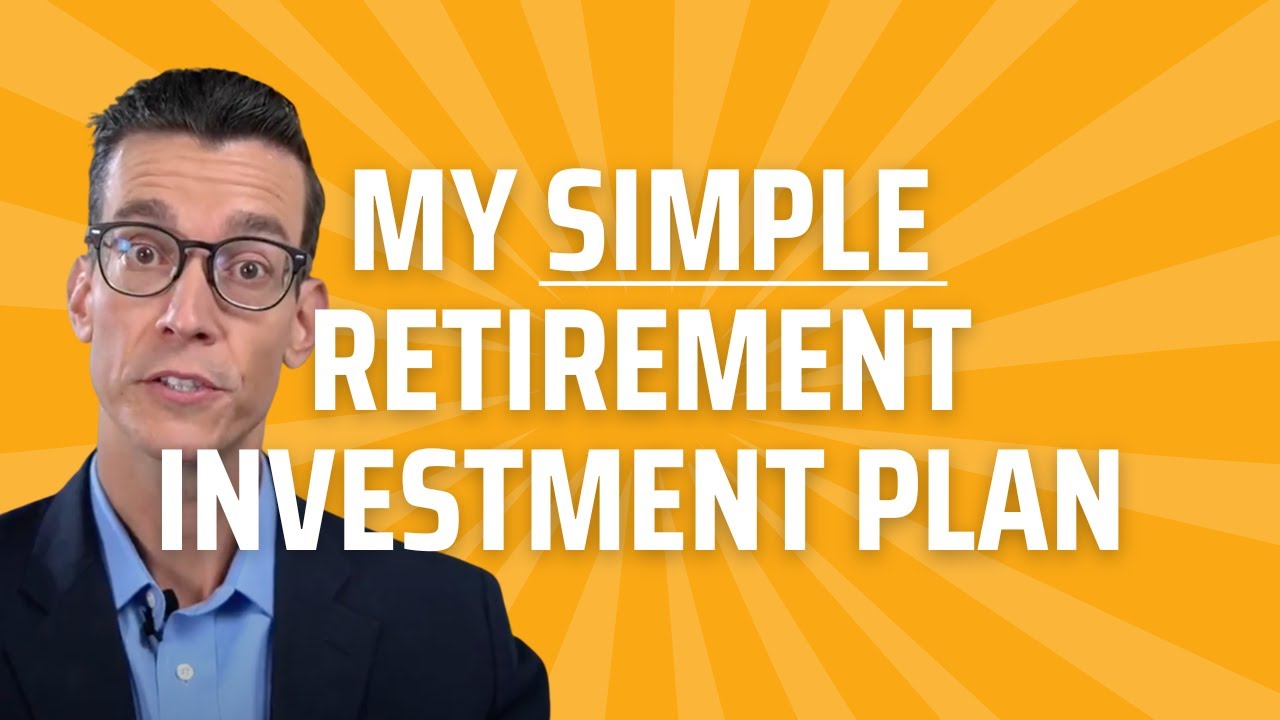
Why This Investment System Can Help Retirees Worry Less About Their Retirement Plan
Jason 0 Comments Retire Wealthy Retirement Planning Tips for Retiree's
I want to share an investment system for retirees to hopefully assist you as you're thinking about and planning for your retirement we're also going to look at how to prepare your retirement for the multiple potential potential economic Seasons that we may be headed into so we want to look at the multiple seasons and then the Easy System that's going to help lower taxes and then lower risk as well now if I haven't met you yet I'm Dave zoller and we help people plan for and Implement these retirement strategies really for a select number of people at streamline Financial that's our retirement planning firm but because we can't help everyone we want to share this with you as well so if you like retirement specific videos about one per week be sure to subscribe so in order to create a proper investment plan in system we want to make sure that we build out the retirement income plan first because without the income plan it's much harder to design the right investment strategy it's kind of like without the income plan it's like you're guessing at well 60 40 portfolio sounds good or you know May maybe this amount in the conservative bucket sounds reasonable you already know and and you feel that as you get close to retirement that goal of just more money isn't the the end-all goal that we should really be aiming for for retirement it's more about sustainability and certainty and then really the certainty of income and possibly less risk than before the last 30 years uh the things that you did to be successful with the financial side are going to look different than the next 20 or 30 years now if you need help defining the the income plan a little bit then look at the DIY retirement course below this video now once you do Define your goals for retirement and then the income needed to achieve those goals then creating the investment system becomes a lot easier and within the investment plan we really know that we can only control three things in all three things we actually want to minimize through this investment system the first thing we can minimize or reduce is how much tax you pay when investing we had a a client who was not a client of streamline Financial but of a tax firm coming to the the CPA firm in March to pick up his tax return and he was completely surprised that he had sixty thousand dollars of extra income on his tax return that he had to pay tax on right away before April 15th and it was due to the capital gains being recognized and other distributions within his investment account and he said but I didn't sell anything and the account didn't even go up that much last year and I got to pay tax on it but he was already in the highest tax bracket paying about close to 37 percent on short-term capital gains and dividends and interest so that was an unpleasant surprise and we see it happen more often than it should but this can really be avoided and here's two ways we can control tax so that we don't have to have that happen and really just control tax and pay less of it is the goal and I'll keep this at a high level but it'll get the the point across number one is the kinds of Investments that you own some are maybe funds or ETFs or individual uh equities or things like that the funds and ETFs they could pass on capital gains and and distributions to you each year without you even doing anything without you selling or or buying but it happens within the fund a lot of times now we would use funds and ETFs that are considered tax efficient so that our clients they can decide when to recognize gains rather than letting the fund company decide now the second way is by using a strategy that's called tlh each year there's many many fluctuations or big fluctuations that happen in an investment account and the strategy that we call tlh that allows our clients that's tax loss harvesting it allows them to sell an investment that may be down for part of the year and then move it into a very similar investment right away so that the investment strategy stays the same and they can actually take a write-off on that loss on their taxes that year now there's some rules around this again we're going high level but it offsets uh you know for that one client who are not a client but who had the big sixty thousand dollars of income he could have been offsetting those capital gains by doing tlh or tax loss harvesting that strategy has really saved hundreds and thousands of of dollars for clients over a period of years so on to the next thing that we can control in our investment plan and that's cost this one's easier but many advisors they don't do it because it ends up paying them less now since we're certified financial planner professionals we do follow the fiduciary standard and we're obligated to do what's best for our clients so tell me this if you had two Investments and they had the exact same strategy the same Returns the same risk and the same tax efficiency would you rather want the one that costs 0.05 percent per year or the one that costs 12 times more at point six percent well I know that answer is obvious and we'd go with a lower cost funds if it was all the same low-cost funds and ETFs that's how we can really help reduce the cost or that's how you can help reduce the cost in your investment plan because every basis point or part of a percentage that's saved in cost it's added to your return each year and this adds up to a lot over time now the last thing that we want to minimize and control is risk and we already talked about the flaws of investing solely based on on risk tolerance and when it comes to risk a lot of people think that term risk tolerance you know how much risk can we on a scale of one to ten where are we on the the risk factor but there's another way to look at risk in your investment strategy and like King Solomon we believe that there's a season for everything or like the if it was the bird song There's a season for everything and we also believe that there's four different seasons in investing and depending on what season we're in some Investments perform better than others and the Four Seasons are pull it up right now it's higher than expected inflation which we might be feeling but there's also a season that can be lower than expected or deflation and then there's higher than expected economic growth or lower than expected economic growth and the goal is reduce the risk in investing by making sure that we're prepared for each and every one of those potential Seasons because there are individual asset classes that tend to do well during each one of those seasons and we don't know nobody knows what's really going to happen you know people would would speculate and say oh it's going to be this or this or whatever might happen but we don't know for sure that's why we want to make sure we just have the asset classes in the right spots so that the income plan doesn't get impacted so the investment system combined with the income system clients don't have to worry about the movements in the market because they know they've got enough to weather any potential season I hope this has been helpful for you so far as you're thinking about your retirement if it was please subscribe or like this video so that hopefully other people can be helped as well and then I'll see you in the next one take care thank you

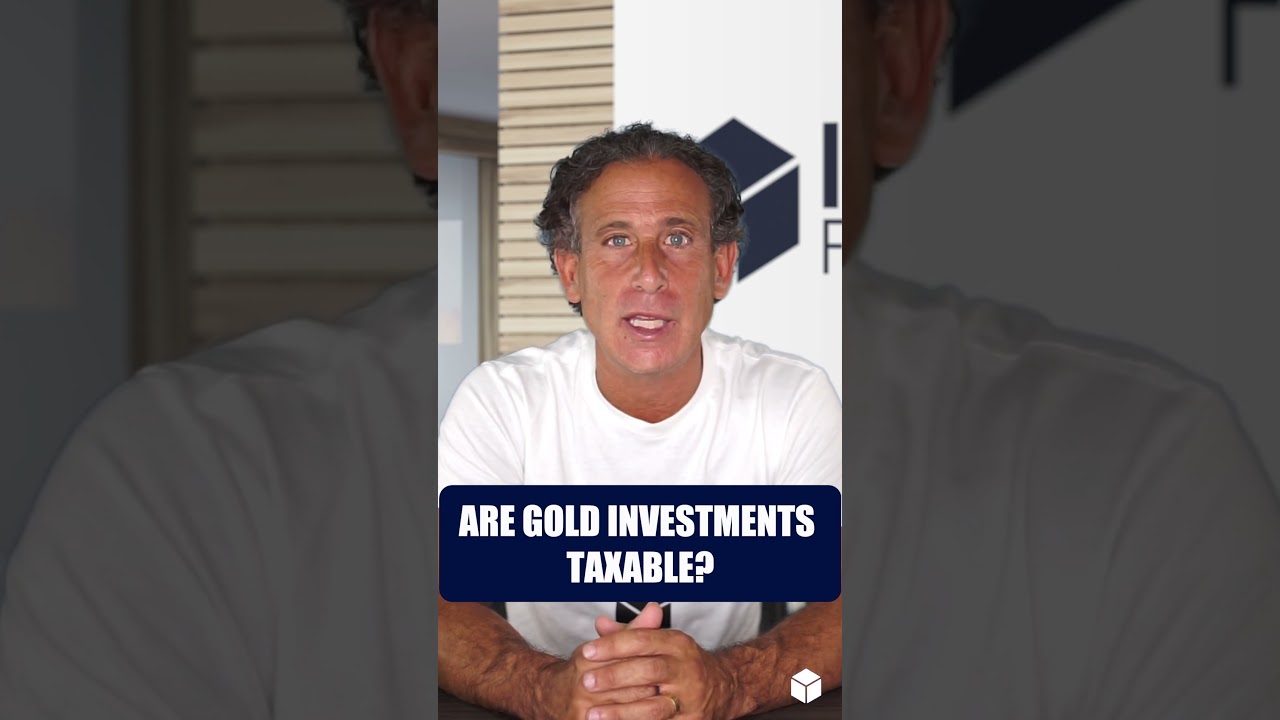
Are Gold IRA Investments Taxable?
Jason 0 Comments Retire Wealthy Retirement Planning
Are gold IRA investments taxable?
No! Thankfully, when you use a self-directed IRA to buy gold, so long as you're holding
it at a US depository, when you sell the gold, all gains will
flow back to your IRA with no tax. In addition to diversification,
the advantage of generating tax-free returns from your gold IRA investment
is what makes it so popular.


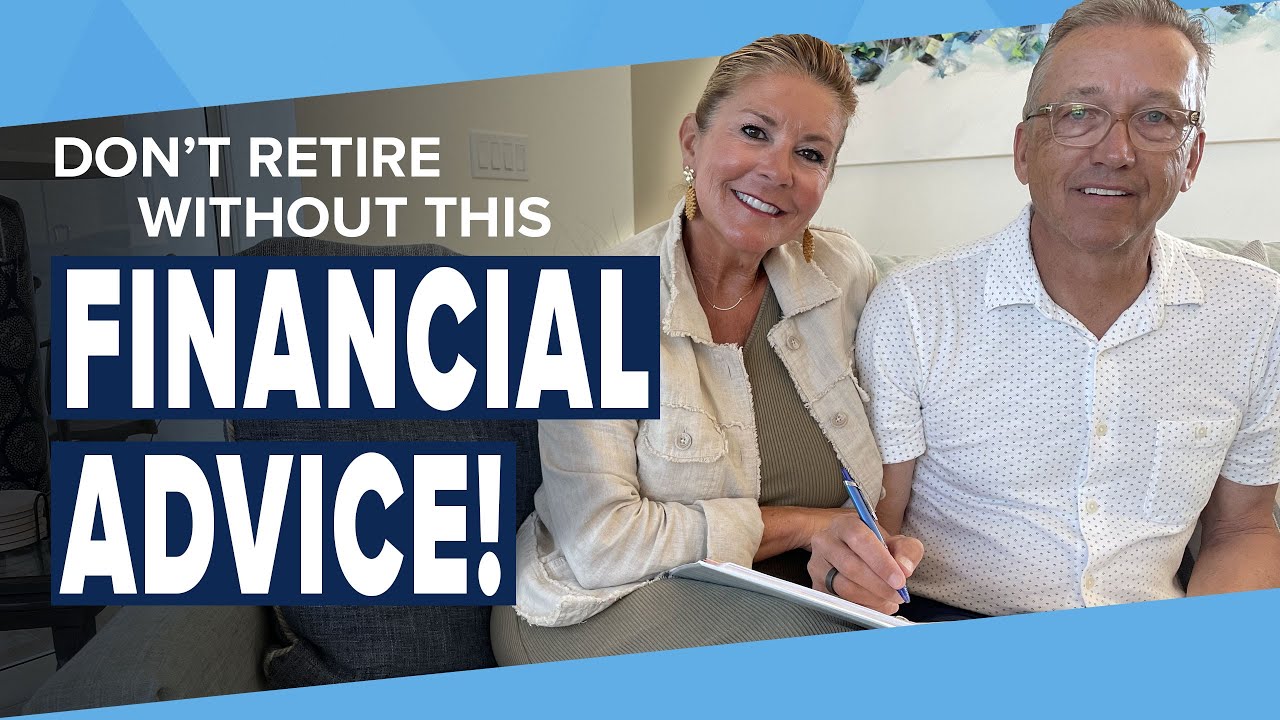


Recent Comments